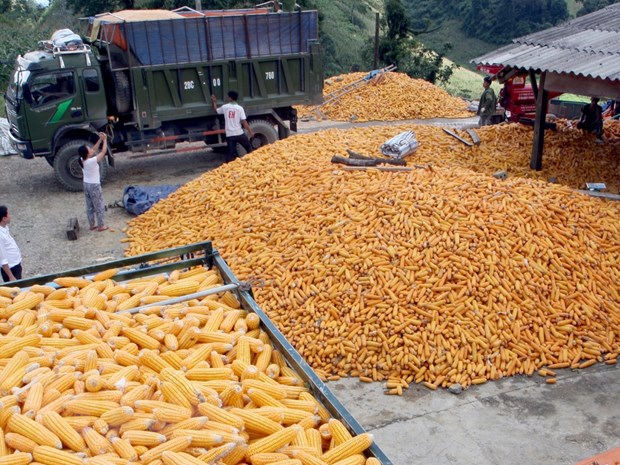 Economy
Economy

 |
| A corn processing site in the northern province of Sơn La. VNA/VNS Photo |
HÀ NỘI A top priority among Vietnamese businesses is to diversify their supply sources, as shown in a recent survey by Vietnam Report, a market research company in Việt Nam.
According to the report, 72.7 per cent of all participants said they want to seek out new suppliers at lower prices and they want to do so in the near future.
Businesses said the main objective is to cut down costs and improve competitiveness. In addition, a more diverse supply will help minimise risks of interruption.
However, many said they have been struggling in their quest to find new suppliers, especially for imported raw materials.
Meanwhile, economists and industry experts have long voiced their concerns over the low utilisation rate of tariff advantages from the free trade agreements (FTAs) that the Southeast Asian economy has signed.
For example, Dr Nguyễn Thái Chuyên from RMIT University, an Australian university in Việt Nam, said there is a lack of understanding and initiative among businesses regarding the Vietnam-European Union Free Trade Agreement (EVFTA).
He said a recent report by the Vietnam Chamber of Commerce and Industry (VCCI) indicated that more than half of participating businesses did not possess a deep understanding of the EVFTA.
The trade deal has been hailed as an opportunity for Vietnamese businesses to import raw materials, adopt advanced technologies and develop new industries.
However, according to the chamber Vietnamese businesses currently benefit from very few tax cuts from the trade deal including preferential import tax rates. Numerous businesses said they were not aware of existing preferential policies or that they failed to prepare the required documents to benefit from them.
Meanwhile, China remained Việt Nam's largest supplier. According to the Ministry of Industry and Trade's data, China remained Việt Nam's largest supplier with an estimated turnover of US$ 68.13 billion in the first 8 months of 2023
Most businesses have a preference for Chinese suppliers as they can provide raw materials at very competitive prices. This, however, could result in complications later when they attempt to leverage tariff advantages when exporting to some key FTA markets, including the EU.
Chuyên said EU markets have strict rules over quality, safety requirements for industrial goods, and sanitary and phytosanitary standards for agricultural and food products. This has been a major obstacle for Vietnamese businesses due to their reliance on imported raw materials from China and ASEAN countries, making it difficult to control quality standards.
Economists and industry experts have long urged businesses to be more proactive and diversify their supply sources.
Some progress has been made on that front. In the first eight months of 2023, Việt Nam imported 1.18 million tonnes of corn from India, 22 per cent of the total amount imported for the period, an increase of 74 per cent from the same period last year. VNS




